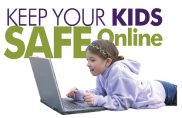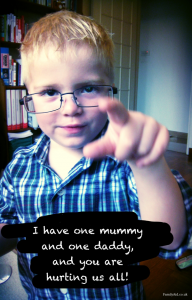Tara Shafer
posted in Parenting
It has been more than a decade since I started writing about baby loss and bereavement following the stillbirth of my son in 2005. I started because a friend of mine asked me to write the story of my loss down. I was sad and defeated and I said something along the lines of “why, who would ever read it?” and she said that she would.
And so I did write it down. And I gave it to her to read. I see now that in sharing my story, I was preserving it.
In the decade since I’ve been writing about baby loss, I have witnessed a remarkable shift in transparency about how families cope with loss. Stigma has given way to the intention of “shattering the silence” around baby loss. Now, it is relatively acceptable to talk about loss. It may be that people still feel frustrated and unsupported when they talk about loss, but this is all part of the evolution of learning to talk about it.
In fact, we talk about baby loss more and to better ends than we have ever done before.
The ability to share stories digitally has created communities where there were none. When I first wrote my story, Facebook was still in the infancy stages. There were far fewer places to put down the stories of loss that many have carried but few had shared. Hospital support groups existed, but for those of us who don’t always like to physically be with people when coping with heady things, this delivery of services had limitations.
Innovations in technology have led directly to communities around loss. This has done both women and men coping with loss a great service. There are now moderated groups of people wanting to extend meaningful support.

I saw a fantastic therapist after the stillbirth of my son. The service we had held for him in a dear church that means the world to me was still in my mind. It had been attended by friends, but there had been many hushed murmurs about whether others should attend — if, in fact, they were close enough. We were all so bound in courtesy and confused by the lack of etiquette.
Anyway, I sat before this therapist and we talked about understanding. And I told her that I found that while everyone in loss had experienced something similar, that everyone understood it in their own way. I still hold that this is true.

But something important has happened since that session. While we all understand our loss as only we can — response to grief is informed by all kinds of cumulative life experiences — we can now find more and variant communities of loss, from in-person retreats to moderated digital groups.
It is still agony. Nothing can change that fundamental truth. But the agony can be somewhat lessened by finding women and men who can gather and share. As John Steinbeck wrote:
“We are lonesome animals. We spend all our life trying to be less alone. One of our ancient methods is to tell a story, begging the listener to say — and to feel — ‘yes, that is the way it is, or at least the way I feel it. You are not as alone as you thought.'”
For information about communities that connect bereaved parents, please visit these sites:
BabyCenter Grief and Loss Community Groups – Join fellow moms and dads dealing with loss in this massive online community.
Return To Zero Center for Healing – In-person and online bereavement retreats and more.
Pregnancy After Loss Support – Moderated digital groups and more for those who are pregnant or parenting after loss.
Reconceiving Loss – Online resources (yoga, writing, recipes, and more) and gift memberships for people coping with baby loss and bereavement.
Images by iStock

































Have you had reason to take about pregnancy or infant loss? What is your experience?